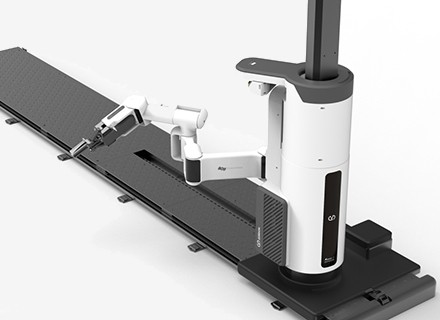Japanese firm Telexistence will soon deploy an AI-driven fleet of robots to replenish shelves in 300 convenience stores.
According to a statement from Tokyo-based Telexistence, the robot arms are currently in mass production and are intended to refresh drinks in freezers.
Later this month, Telexistence will be deployed in FamilyMart shops in Japan throughout significant urban regions, relieving store employees and helping to fill the gap left by a declining labor force in the nation.
The devices, known as TX SCARA, or Selective Compliance Assembly Robot Arm, are primarily autonomous, with remote piloting as a backup option in case the artificial intelligence malfunctions or runs into unexpected objects. According to Telexistence, each unit may replace one to three hours of labor per store daily.
According to Tomohiro Kano, general manager of FamilyMart, one of the fundamental management issues for FamilyMart to retain stable store operations is the fall in Japan’s labor population.
The newly freed up time could be redirected towards improving the shop floor and providing customer service in many stores in Japan.
For the use of the robot, its upkeep, and the help of remote personnel who may operate the arm using a virtual reality headset as needed, FamilyMart will pay Telexistence a monthly charge.
According to Telexistence, bots can operate 98% of the time without assistance from humans.
Telexistence worked with Microsoft and Nvidia, two of the biggest names in American technology, to build the bots’ technology. In order to optimize restocking duties, the SCARA arms process information using Nvidia’s Jetson AI platform and store and access sales data using Microsoft’s Azure cloud infrastructure.
FamilyMart now operates 16,000 conbini—convenience stores—across its home market, but Telexistence and Microsoft claim they intend to spread the technology over the entire world. In order to grow internationally, Telexistence will next focus on the more than 150,000 convenience stores that exist nationwide.
Image credit: Telexistence

